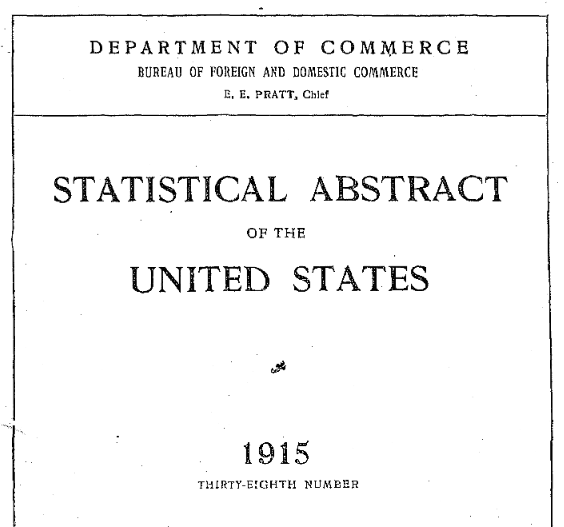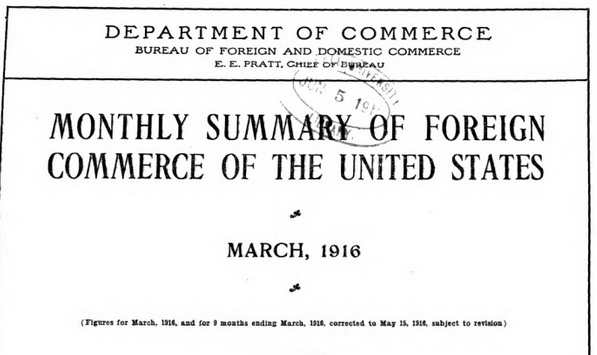Take historic international trade data. Should we trust it?
[THREAD]
correlatesofwar.org/data-sets/bila…
cambridge.org/core/journals/…
They provide a full list of the sources consulted in their 2017 @BJPolS piece
www-cambridge-org.proxy.uchicago.edu/core/journals/…
census.gov/library/public…

That requires another source.

If you want to go REAL deep, you could visit the National archives to see these manifests
archives.gov/research/guide…
That's a safe assumption for some data, from certain countries, at particular times.
But it's important to consider when that assumption isn't safe!
[END]
sciencedirect.com/science/articl…
tandfonline.com/doi/full/10.10…














